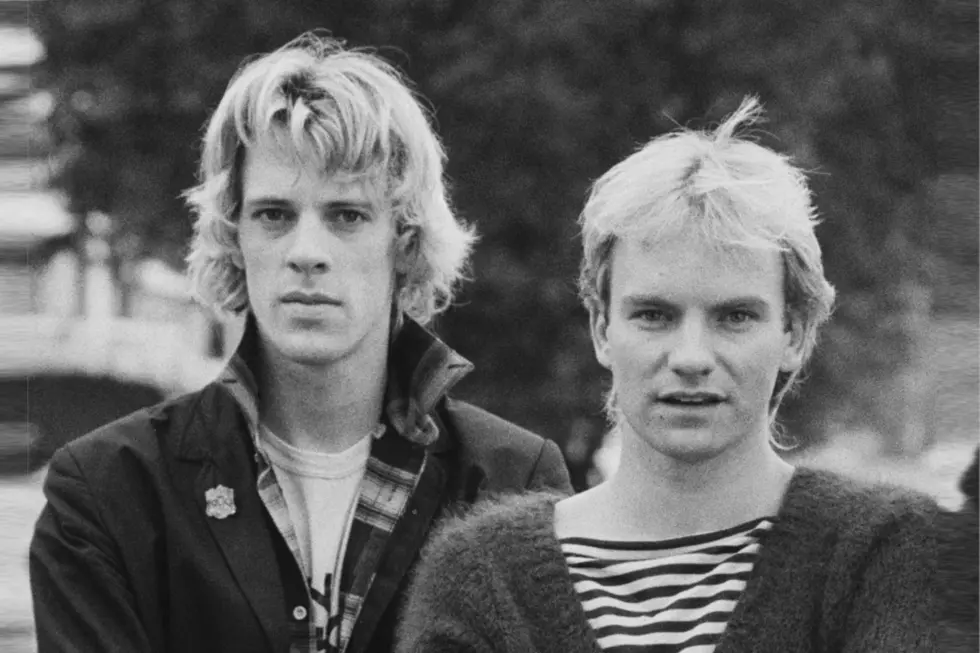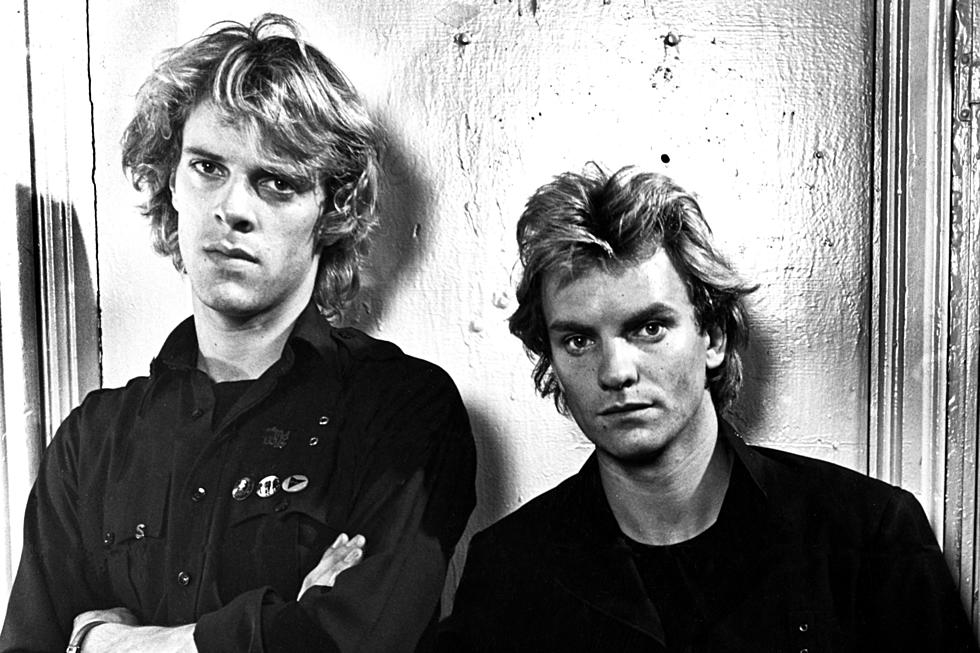
10 Things You Didn’t Know About Police Drummer Stewart Copeland
Police drummer Stewart Copeland is an artist in multiple senses of the word. Along with Sting and Andy Summers, Copeland was responsible for some of rock's greatest hits, but he's also produced a lot of music outside of the Police. Here are 10 things you didn't know about Stewart Copeland.
10. He's a bit of a film buff
During his time with the Police, Copeland was constantly shooting video of the group's activities. Years later, he took the 50 hours of Super 8 video footage and edited them into the Police documentary Everybody Stares, a must-view for Police fans.
9. Speaking of film, did you know about his soundtrack work?
Starting with Francis Ford Coppola's Rumble Fish in 1983, Copeland found a nice post-Police career doing scoring work for a number of projects including Wall Street, Talk Radio and Highlander 2. He also composed the theme song for TV's The Equalizer and worked on Dead Like Me and Babylon 5.
8. He spent his own night at the opera
Despite admitting a lack of familiarity with opera and an unorthodox composition method, Copeland made an ill-fated attempt to mount his own production Holy Blood and Crescent Moon in Cleveland in 1989. Although the Cleveland gig could have gone better, it wasn't his last attempt: He later debuted a musical version of Edgar Allen Poe's The Tell-Tale Heart in London as part of a double bill with Monty Python's Terry Jones.
7. But he also did ballet
Prior to venturing into opera, Copeland took a couple of stabs at ballet, something that he was admittedly inexperienced with -- similar to his lack of operatic experience. He collaborated with the San Francisco Ballet on a version of King Lear.
6. His first real job was being a manager
Copeland hit the road in 1974 as the road manager for progressive rock band Curved Air and he eventually segued into drumming for the group in 1975 and 1976 before the Police formed in 1977.
5. It's a bird, it's a plane, it's Stewart Copeland!
Under the guise of "Klark Kent," Copeland recorded a series of single releases that were released on green vinyl between 1978 and 1980. He played all of the instruments himself and the tracks were all eventually re-released on CD with bonus tracks in 1995 on the Kollected Works release.
4. His first hit came as a guitar player
The Klark Kent project gave Copeland his first hit, but not as a drummer. As an accomplished guitarist, Copeland scored a Top 50 hit in the U.K. with the Klark Kent song "Don't Care" in 1978. In an interview with Guitar International, Copeland said he now played guitar more than drums in his spare time.
3. Stewart can jam with the best of 'em
Working with Phish's Trey Anastasio and Les Claypool of Primus, the band that would eventually become known Oysterhead entered into the studio with a selection of songs planned for recording. The rest, roughly 50 percent by Copeland's estimation, out of material pieced together from in-studio jam sessions.
2. That Oysterhead gig brought him back to drumming
Copeland says it was at the urging of Claypool that he picked up a pair of drum sticks for the first time in about 10 years. Claypool lured him into the studio to produce a Primus track and asked if Copeland would also be willing to jam with them while they were in the studio, a request that Copeland readily accepted.
1. He's not a big fan of all that jazz
Seriously, he doesn't have many kind words to say about the musical genre of jazz. Copeland says that he grew up with jazz music all around him thanks to his dad, who was a jazz musician. He calls jazz a "refuge of the talent-less."
More From Ultimate Classic Rock









